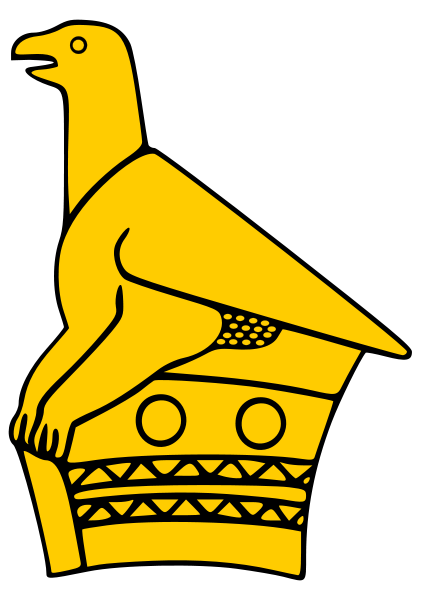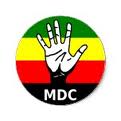The Kia
Pioneer Days
And its effect in Zimbabwe?
Jameson's raid depleted Matabeleland of many of its troops and left the whole territory vulnerable. Seizing on this weakness, and a long list of grievances against the BSAC, the Ndebele rose up in March 1896 in what is now celebrated as the First War of Independence, the First Chimurenga or Umvukela.
Jameson as Muse to Kipling
Possibly Rudyard Kipling's most famous poem is If. Its inspirational words and the strong positive emotions it evokes have stood the test of time and even today provide encouragement to the millions who know it. But most people do not know the real source of Kipling's advice to his son in 1909.
In Kipling's autobiography, Something Of Myself, published in 1937, the year after his death, he acknowledges the inspiration for If in a single reference: 'Among the verses in Rewards was one set called If - they were drawn from Jameson's character, and contained counsels of perfection most easy to give.'
Jameson never revealed the extent of the British Government's support for the raid. This has led a string of Kipling scholars to point out that the poem's lines 'If you can keep your head when all about you / Are losing theirs and blaming it on you' were designed specifically to pay tribute to the courage and dignity of Jameson's silence. His stoicism in the face of adversity and his determination not to be deterred from his task are reflected in the lines: 'If you can make a heap of all your winnings / And risk it at one turn of pitch and toss / And lose, and start again from your beginnings / And never breathe a word about your loss...'
As Kipling's biographer, Andrew Lycett, puts it: 'In a sense, the poem is a valedictory to Jameson, the politician.' Kipling's anger at Jameson's treatment by the British establishment never abated. Even though the poet had become the first English-speaking recipient of the Nobel Prize for Literature in 1907, he refused a knighthood and the Order of Merit from the British Government and the King, just as he refused the posts of Poet Laureate and the Companion of Honour.
All in all, an impressive hero for Kipling's son, John. 'If you can fill the unforgiving minute / With sixty seconds' worth of distance run / Yours is the Earth and everything that's in it / And - which is more - you'll be a Man my son!'
What happened to Jameson?
In 1903 Jameson came forward as the leader of the Progressive (British) party in the Cape Colony. He became Prime Minister of the Cape Colony from 1904 to 1908 and served as the leader of the Unionist Party (South Africa) from its founding in 1910 until 1912. Jameson was created a baronet in 1911 and returned to England in 1912. Jameson died in the afternoon of Monday November 26, 1917 in the City of London. His body was laid in a vault at Kensal Green Cemetery on 29 November, 1917, where it remained until the end of the First World War. Ian Colvin writes that Jameson's body was then "carried to Rhodesia and on May 22, 1920, laid in a grave cut in the granite on the top of the mountain which Rhodes had called The View of the World, close beside the grave of his friend... There on the summit those two lie together."
Acronyms
- BBP - Bechuanaland Border Police
- BSAC - British South Africa Company
- BSAP - British South Africa Police
- MMP - Mashonaland Mounted Police
- ZAR - Zuid-Afrikaansche Republiek (Transvaal)
Select Bibliography
- Burrett, R.S. 2009. Plumer’s Men. The Rhodesia Regiment and the Northwest Frontier during the Second South African War, 1899-1902. Durban: Just Done Productions.
- Colvin, I. 1922-1923. The Life of Jameson (Two Volumes). London: Edward Arnold and Co.
- Fort, G.S. 1918. Dr Jameson. London: Hurst and Blackett, Ltd.
- Longford, E. 1982. Jameson's Raid: The Prelude to the Boer War. (2nd edition). Johannesburg: Jonathan Ball Publishers.
- Omer-Cooper, J.D. 1994. History of southern Africa (2nd Edition). Oxford: James Currey.
- Saks, D. 2003. The Jameson Raid: A Failed Dress Rehearsal For The Anglo-Boer War. South African Military History Journal 12 (5).
The Raiding Column
Officer Commanding: Lieutenant-Colonel Sir John Willoughby, Royal Horse Guards.
| Mashonaland Mounted Police | Bechuanaland Border Police | Total | |
|---|---|---|---|
| Officers and Men | 372 | 122 | 494 |
| Staff | 13 | 1 | 14 |
| Drivers/leaders etc | 65 | 10 | 75 |
| Horses | 480 | 160 | 640 |
| Mules | 128 | 30 | 158 |
| Carts | 7 | - | 7 |
| Grain wagons | 2 | - | 2 |
| 12.5 pounder | 1 | - | 1 |
| 7-pounders | - | 2 | 2 |
| Maxims | 6 | 2 | 8 |
The Afrikaners
Commanders:
Commandant Piet Cronje, supported by Commandants Trichard, Potgieter and Malan.
Burghers:
Unknown, approximately 1 000 mounted riflemen.
From Saks (2003)
Sourced from the Zanj Financial Network 'Zfn', Harare, Zimbabwe, email briefing dated 10 January 2011



 South Devon Sound Radio
South Devon Sound Radio Museum of hp Calculators
Museum of hp Calculators Apollo Flight Journal
Apollo Flight Journal Apollo Lunar Surface Journal
Apollo Lunar Surface Journal Cloudy Nights Classic Telescopes
Cloudy Nights Classic Telescopes martini in the morning - The Lounge Sound
martini in the morning - The Lounge Sound The Savanna - Saffer Shops in London
The Savanna - Saffer Shops in London Linux Mint
Linux Mint
 Movement for Democratic Change
Movement for Democratic Change